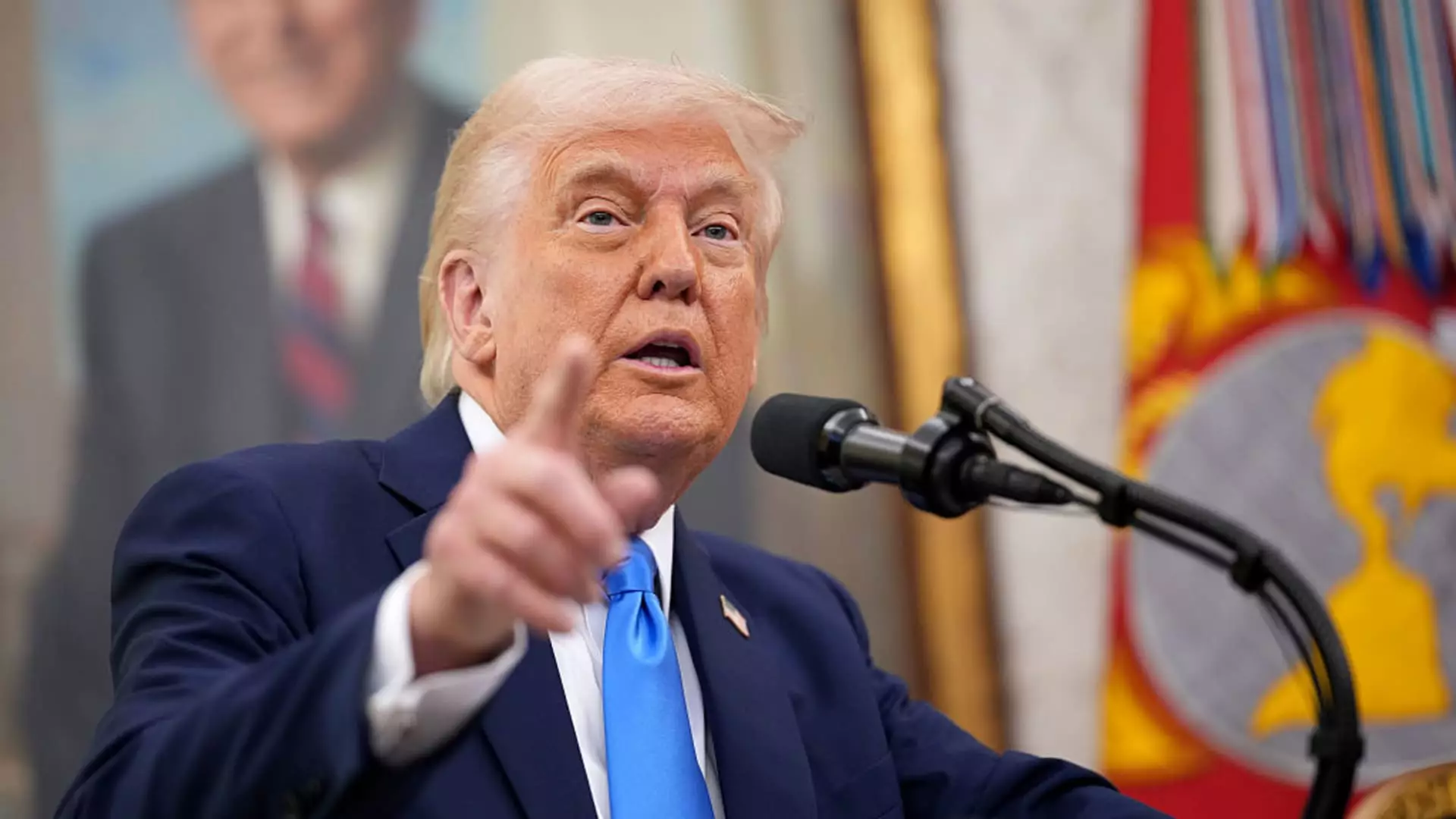In an unsettling display of economic recklessness, President Donald Trump is preparing to announce a hefty imposition of tariffs that could send shockwaves through the global trading system. Dubbed as “reciprocal tariffs,” these new duties target countries that maintain their own trade barriers against U.S. goods. However, the precise details surrounding the announcement, scheduled for Wednesday, remain opaque, leading to a climate of fear and uncertainty among businesses and economists alike. Amidst a backdrop of hyperbolic rhetoric, Trump has hailed this initiative as something of a “liberation day” for America—a rather ironic proclamation given that such measures threaten to sink the very economy they aim to “rescue.”
What’s alarmingly clear is that Trump’s intended market manipulations are set to impact trade partners unevenly. There remains a significant lack of transparency about which nations will bear the brunt of these tariffs, leaving many to wonder: is this truly a strategy aimed at global fairness, or simply another foray into punitive economic isolationism? The ambiguity and mystery surrounding the scope of these tariffs illuminate either a gross mishandling of policy communication or, perhaps more ominously, an intention to create chaos in the markets.
The “Dirty 15” and Economic Targeting
Key figures within the Trump administration have foreshadowed the targeting of particular nations, coining the term “Dirty 15” to label the countries responsible for a substantial share of the U.S. trade deficit. Treasury Secretary Scott Bessent’s mention of this group, while failing to provide details on which nations comprise it, raises several red flags. However, it highlights an ongoing theme in American trade policy under Trump: a fixation on bilateral trade deficits without recognizing the complexities of international markets.
Director of the National Economic Council, Kevin Hassett, indicated that the administration would be focusing on 10 to 15 nations that contribute to America’s “trillion-dollar trade deficit.” Yet history has shown that trade deficits are not necessarily indicative of a failing economy. In fact, they can be a reflection of robust domestic consumer demand for diverse and often cheaper foreign goods. By eradicating the nuanced conversation around trade relationships and underlying economic principles, the administration promotes an oversimplified and damaging narrative on trade.
Cascading Effects and Global Implications
The anticipated tariffs represent not just a unilateral decision but signal a potential departure from traditional diplomacy and global economic collaboration. Countries that have historically maintained amicable trading relationships with the United States may now find themselves embroiled in trade wars that could escalate far beyond tariffs. The health of the global economy hangs in the balance, and arbitrary imposition of tariffs could lead to retaliatory measures that stifle the economic growth both at home and abroad.
The current trajectory suggests a grim outcome: damaging inflation and increased costs for American consumers might be on the horizon. Tariffs essentially act as hidden taxes imposed on the populace, ultimately falling hardest on the shoulders of everyday Americans. The proposed measures on foreign goods such as steel and aluminum, followed by a barrage of tariffs on automobiles and other imported goods, will only compound these challenges as manufacturers pass costs down the supply chain.
The Impending Economic Backfire
In essence, the explicit focus on trade deficits devoid of context not only undermines established economic theories but also emboldens a cycle of protectionism that could severely disrupt international relations. Trump’s misunderstanding of trade dynamics—associating wealth strictly with export surpluses—disregards the interconnected nature of modern economies. Economists worldwide warn that such a narrow view has the potential to stifle innovation and growth, pushing American enterprises towards a stagnant existence while countries adapt more swiftly to changing global dynamics.
As tariffs loom on the horizon, it is crucial for policy makers and citizens alike to critically examine the motivations and implications behind such drastic economic interventions. The complexities of trade demand a dialogue predicated on collaboration, not confrontation. Only through informed and open discussions can we hope to chart a course toward a fairer and more sustainable economic future. The stakes have never been higher, and yet the U.S. clings to divisive politics in lieu of constructive solutions.


Leave a Reply